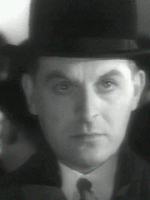Walter Summers est un Réalisateur, Scénariste et Producteur Britannique né le 2 septembre 1892 à Barnstaple (Royaume-uni)

Walter Summers, né à Barnstaple (comté de Devon) le 2 septembre 1892 et mort à Wandsworth (Grand Londres) en avril 1973, est un réalisateur et scénariste britannique.
[...]Voir plus...
Source : Wikidata
Walter Summers

- Infos
- Photos
- Meilleurs films
- Famille
- Personnages
- Récompenses
Nationalité Royaume-uni
Naissance 2 septembre 1892 à Barnstaple (Royaume-uni)
Mort 1 janvier 1973 (à 80 ans) à Wandsworth (Royaume-uni)
Naissance 2 septembre 1892 à Barnstaple (Royaume-uni)
Mort 1 janvier 1973 (à 80 ans) à Wandsworth (Royaume-uni)
Biographie
Born in Barnstaple to a family of actors, British motion picture director Walter Summers began his career in the family trade; his first contact with filmmaking was as an assistant to American director George Loane Tucker, who worked for the English London Films unit from 1914 to 1916. With the outbreak of war, Summers mobilized into the British Army, gaining experiences that would serve him well later as a filmmaker. At war’s end, Summers worked briefly for Cecil Hepworth, and then the Territorial Unit in India before making contact with producer/director George B.[...]Voir plus...
Le plus souvent avec
Filmographie de Walter Summers (39 films)
Réalisateur

At the Villa Rose (1940)
, 1h14Réalisé par Walter Summers
Origine Royaume-uni
Acteurs Kenneth Kent, Judy Kelly, Peter Murray-Hill, Walter Rilla, Antoinette Cellier, Clifford Evans
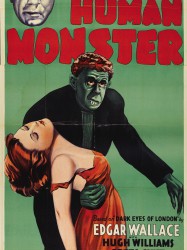
Le Tueur aveugle (1939)
, 1h15Réalisé par Walter Summers
Origine Royaume-uni
Genres Thriller, Horreur, Policier
Thèmes Maladie, Le handicap, La cécité
Acteurs Bela Lugosi, Hugh Williams, Greta Gynt, Wilfred Walter, Alexander Field, Edmon Ryan
Note57%





À Londres, l'inspecteur Larry Holt de Scotland Yard enquête sur une série de noyades suspectes dans la Tamise. Un cinquième cadavre a été repêché et les investigations du détective le conduisent à un agent d’assurances nommé Feodor Orloff, toutes les victimes ayant souscrit, peu avant leur décès, une assurance dont le bénéficiaire est un certain professeur John Dearborn. Ce dernier est le directeur d'un refuge, parrainé par Orloff dans lequel il est également docteur, destiné aux aveugles nécessiteux et parait au-dessus de tous soupçons mais Holt poursuit son enquête, secondé par Diana Stuart dont le père vient de se noyer dans la Tamise.
[...]Voir plus...
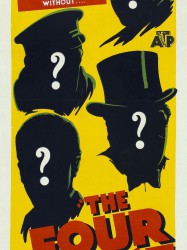
The Four Just Men (1939)
, 1h25Réalisé par Walter Summers, Walter Forde
Origine Royaume-uni
Genres Drame, Thriller
Acteurs Edward Chapman, Griffith Jones, Hugh Sinclair, Francis L. Sullivan, Frank Lawton, Anna Lee
Note62%





The Four Men are British World War I veterans who unite to work in secret against enemies of the country. They aren't above a spot of murder or sabotage to achieve their ends, but they consider themselves true patriots.

Traitor Spy (1939)
Réalisé par Walter Summers
Genres Espionnage
Thèmes Espionnage
Acteurs Bruce Cabot, Tamara Desni, Marta Labarr, Romilly Lunge, Edward Lexy, Cyril Smith
Note62%






Premiere (1938)
Réalisé par Walter Summers
Acteurs John Lodge, Joan Marion, Judy Kelly, Hugh Williams, Edward Chapman, Steven Geray
Note60%






Lucky Jade (1937)
Réalisé par Walter Summers
Genres Comédie, Policier
Acteurs Betty Ann Davies, Syd Crossley
Note51%






The Price of Folly (1937)
Réalisé par Walter Summers
Genres Drame
Acteurs Leonora Corbett, Wally Patch, Judy Kelly, Colin Keith-Johnston
Note50%






Music Hath Charms (1936)
, 1h10Réalisé par Thomas Bentley, Walter Summers, Arthur B. Woods, Alexander Esway
Origine Royaume-uni
Genres Musical
Thèmes Musique
Acteurs Carol Goodner, Arthur Margetson, Antoinette Cellier, Aubrey Mallalieu, Gus McNaughton, Edith Sharpe
Note60%






The Limping Man (1936)
, 1h12Réalisé par Walter Summers
Origine Royaume-uni
Genres Policier
Acteurs Francis L. Sullivan, Patricia Hilliard, Judy Kelly, Iris Hoey, John Turnbull, Syd Crossley
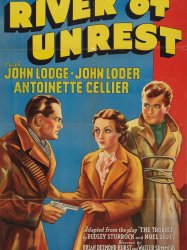
Ourselves Alone (1936)
, 1h8Réalisé par Walter Summers, Brian Desmond Hurst
Origine Royaume-uni
Genres Drame, Romance
Thèmes Politique
Acteurs John Lodge, John Loder, Antoinette Cellier, Niall MacGinnis, Clifford Evans, Jerry Verno
Note61%





The film opens with an IRA ambush of a police convoy carrying two captured members of the IRA. Irish Police Inspector Hannay (John Lodge) and British Captain Wiltshire of the Royal Intelligence Corps (John Loder) both turn out to be in love with Maureen Elliot (Antionette Cellier) sister of the IRA leader. The IRA leader is subsequently shot by Wiltshire. Hannay realises that Maureen is in love with Wiltshire and, as a final gesture, takes the blame for shooting her brother himself. Maureen then helps Captain Wiltshire to escape an IRA trap.
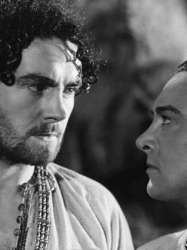
McGluskey the Sea Rover (1935)
, 58minutesRéalisé par Walter Summers
Origine Royaume-uni
Thèmes La mer, Transport
Acteurs Tamara Desni, Cecil Beresford Ramage, Henry Mollison, Hugh Miller
Note25%





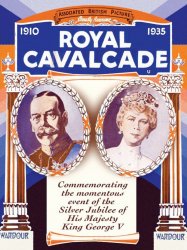
Royal Cavalcade (1935)
, 1h44Réalisé par Herbert Brenon, Marcel Varnel, Thomas Bentley, Norman Lee, Walter Summers, W. P. Kellino
Origine Royaume-uni
Genres Drame, Documentaire
Acteurs Marie Lohr, Olga Lindo, Hermione Baddeley, Owen Nares, Charles Paton, C.V. France
Note65%





The film portrays a dramatised pastiche of great events that occurred during the reign of George V. It was made to mark the twenty fifth anniversary of his succession to the throne.
 , 1h13
, 1h13Réalisé par Walter Summers
Origine Royaume-uni
Genres Policier
Acteurs Ralph Richardson, Ann Todd, Claud Allister, Joyce Kennedy, Francis L. Sullivan, Spencer Trevor
Note55%






Timbuctoo (1933)
, 1h12Réalisé par Walter Summers, Arthur B. Woods
Origine Royaume-uni
Thèmes Afrique post-coloniale
Acteurs Henry Kendall, Margot Grahame, Emily Fitzroy, Hubert Harben, Jean Cadell, Una O'Connor
The film's slight storyline concerns a man (Kendall) who has a violent quarrel with his family over his fiancée (Grahame). Feeling totally upset, he wants to get away from all the conflict and decides to travel overland to Timbuktu with its legendary reputation as one of the most remote and mysterious places in the world. As soon as his fiancée learns of his departure, she vows to do the same thing and challenges herself to arrive in Timbuktu before him. Much of the film is essentially taken up with travelogue sequences of African natives and habitats.

The House Opposite (1932)
Réalisé par Walter Summers
Genres Policier
Acteurs Henry Kendall, Frank Stanmore, Abraham Sofaer, Molly Lamont, Charles Farrell
 Connexion
Connexion


